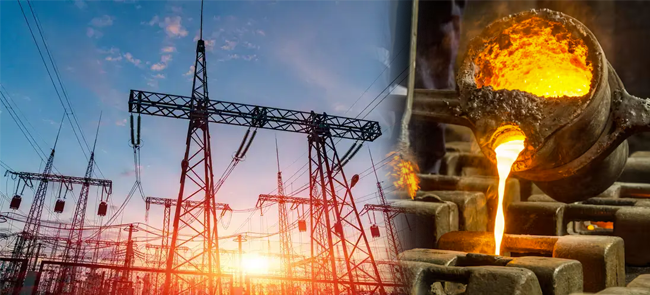
Yogiraj Alucast is the Manufacturer, Supplier, Exporter of Aluminium Gravity Die Castings (Aluminium GDC) Machined Parts / Components / Spares for various industries (with full finished Machined Components). We manufacture and supply a wide selection of industrial castings in compliance with international standards. Our products are highly appreciated by our clients for remarkable quality and features. With the help of dedicated and committed Aluminium experts, we produce general castings for automobile & non-automobile application ranging from 50 gms to 45 kg.
The Raw materials used are LM 4, LM 6, LM9, LM24, LM25, AC2A, AC4CH, AC2B, ASTM Standards, Etc.
Gravity is required to fill molten metal in the mold. This process is cost-effective for automotive castings manufacturers in the long term.
Aluminum castings play a crucial role in the electrical industry due to their lightweight, high thermal and electrical conductivity, corrosion resistance, and excellent mechanical properties. They are used in various electrical applications, including:
Aluminum castings are widely used in electrical applications due to their numerous advantages.
Aluminum has high electrical conductivity, making it an efficient material for electrical components, especially in power transmission and distribution. Aluminum is significantly lighter than other metals like copper and iron, making it ideal for applications where weight reduction is crucial, such as transformers, motor housings, and electrical enclosures.
Aluminum naturally forms an oxide layer that protects it from corrosion, making it suitable for outdoor and harsh environmental conditions. Efficient heat dissipation is essential in electrical components to prevent overheating. Aluminum's excellent thermal conductivity helps maintain optimal operating temperatures.
Despite being lightweight, aluminum castings offer good mechanical strength, making them durable for various electrical applications. Compared to other conductive metals like copper, aluminum is more affordable, making it a cost-effective solution for electrical systems.
Aluminum casting allows for complex geometries and intricate designs, making it suitable for custom electrical components such as switchgear housings and heat sinks. Since aluminum is non-magnetic, it is ideal for applications in electrical equipment where magnetic interference must be avoided. Aluminum is fully recyclable, making it an environmentally friendly choice for electrical applications.
- Electrical Enclosures & Housings: Protect electrical and electronic components from environmental factors.
- Transformer & Motor Parts: Used in stator and rotor components, improving efficiency due to high thermal conductivity.
- Switchgear Components: Essential for high-voltage and medium-voltage electrical systems.
- Busbars & Conductors: Used for efficient power distribution in electrical panels.
- Heat Sinks: Dissipate heat in power electronics and LED lighting systems.
- Connectors & Terminals: Provide reliable and corrosion-resistant connections.
- Cable Management Systems: Cable trays, junction boxes, and other support structures.
Aluminum electrical components are often produced using various casting methods to achieve high conductivity, strength, and precision. The choice of casting method depends on factors such as component complexity, required mechanical properties, production volume, and cost-effectiveness. Each of these methods is selected based on performance needs, cost constraints, and the complexity of the aluminum electrical component being manufactured.
Below are the most common casting methods used for aluminum electrical components:
- Die Casting: High dimensional accuracy, fast production, minimal post-processing.
- High-pressure die casting (HPDC): Best for mass production of intricate aluminum parts with fine details and smooth surfaces. Common in manufacturing electrical housings, connectors, and enclosures.
- Low-pressure die casting (LPDC): Used for medium-complexity parts requiring better mechanical strength, such as bus bars and motor housings.
- Sand Casting:
- Used for larger or custom components with moderate production volumes. Used for large and complex aluminum components like transformer housings and grounding plates
- Investment Casting:
- Provides high detail and dimensional accuracy for specialized parts. Used for intricate and high-precision aluminum electrical components. Common in specialized applications such as high-performance electrical terminals and connectors.
- Gravity Die Casting:
- Good mechanical properties, improved surface finish over sand casting. Uses reusable metal molds for better accuracy and strength compared to sand casting. Suitable for electrical components like switchgear parts and small enclosures.
- Centrifugal Casting:
- High material density, fewer defects, strong mechanical properties. Ideal for cylindrical or ring-shaped electrical components, such as aluminum slip rings.
- Squeeze Casting (Liquid Metal Forging):
- Low porosity, excellent strength, good electrical conductivity. Combines casting and forging to create strong, dense aluminum components. Suitable for high-strength electrical connectors and components needing high thermal conductivity.